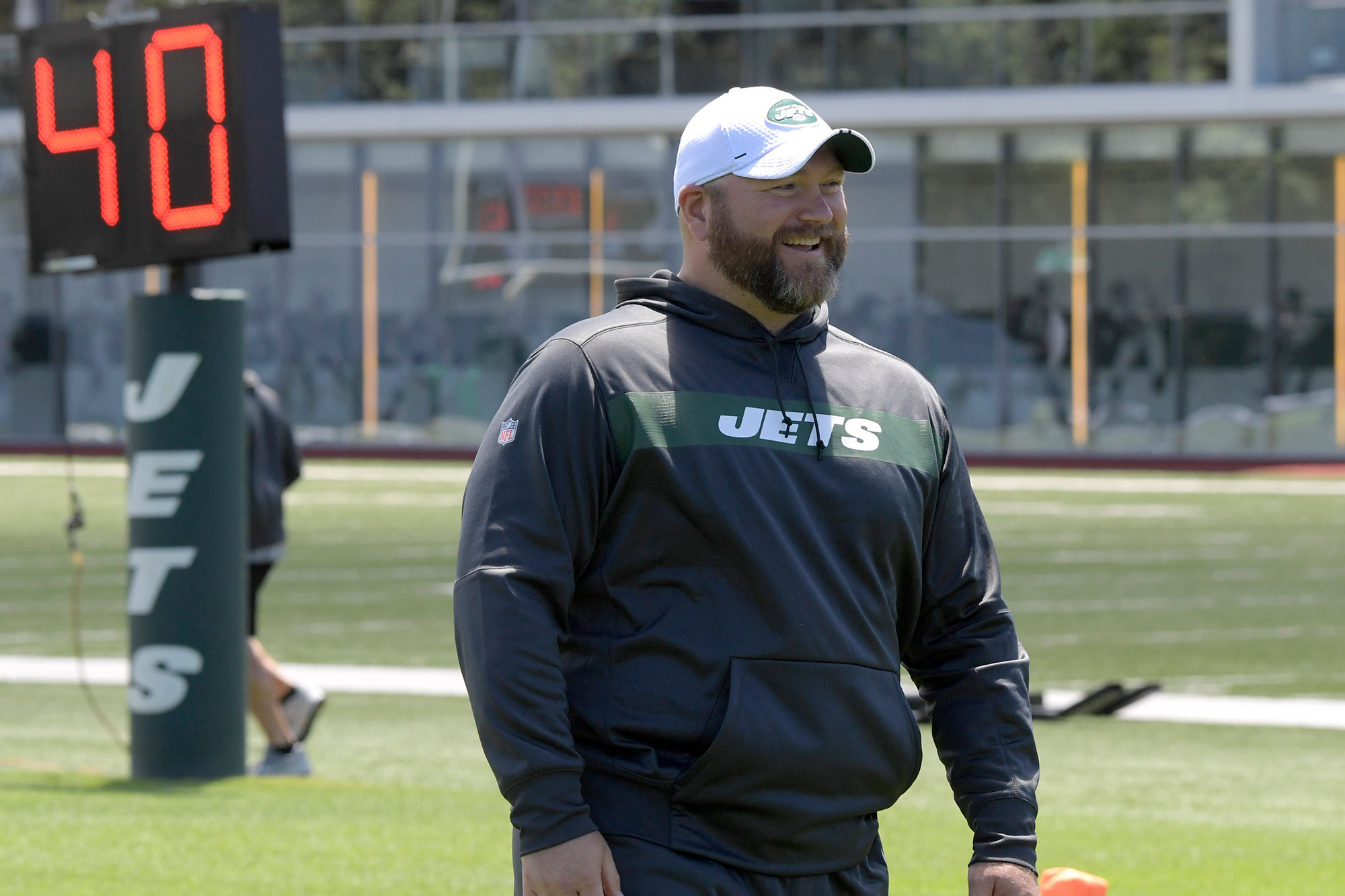More On: adam gase
Le’Veon Bell blames Jets for everything as he languishes in free agency
Jets nearly complete stunning comeback as futility hits new low
Jets fans beware: Chargers could ruin Trevor Lawrence dreams
Now could be time for Jets to poach Jim Harbaugh
It is sad to watch the misery of Sam Darnold
Joe Douglas played the part of Jim Lovell on Tuesday afternoon, surveying the wreckage of his green-tinted version of Apollo 13 as it careens ominously toward the dark side of the moon. Like Lovell,
Joe Douglas played the part of Jim Lovell on Tuesday afternoon, surveying the wreckage of his green-tinted version of Apollo 13 as it careens ominously toward the dark side of the moon. Like Lovell, Douglas isn’t wholly responsible for all the things that helped the Jets arrive at this perilous place.But he’s in charge. This is his watch. So this is his mess. It may seem like the most basic job requirement of the general manager of a sports franchise until you remember some of the other explanations we’ve heard from some of the other men in town who hold the job. Then it’s a genuinely refreshing refrain.
“Ultimately,” he said, “I have to do a better job.”
He reinforced this belief multiple times during a half-hour Zoom call as the trading deadline passed, some in sweeping and general terms, some in specific ones.
On the Jets’ ill-fated decision to allow Robby Anderson to leave for the Carolina Panthers, he was candid in his self-assessment: He failed in properly identifying what it would cost to retain the gifted receiver, who took two years and $20 million to migrate to Charlotte, N.C., and provide ex-Jets quarterback Teddy Bridgewater the kind of weapon that the present Jets QB, Sam Darnold, so desperately craves.
“I’ve thought about Robby,” Douglas said. “There’s thousands of decisions that come across your desk and I look at what I could’ve done better. Our guys did a fantastic job analyzing position value. What went wrong with us and Robby is, we thought his value would be even greater than what he signed for in Carolina.
“That’s on me. That’s on us going forward, getting a better handle on player value.”

Douglas’ imperative Tuesday seemed simple: shoulder as much blame as he could, transferring the bulk of the responsibility for this 0-8 debacle to his shoulders from those of Adam Gase and from Sam Darnold, the two who’ve had to answer for it the most, both after losses and in between them.
Now, on one hand it is the proper thing to do. Douglas is the boss, after all, the one who still has four years and $12 million coming to him after this year to figure out where this is all supposed to go. He will almost certainly get that chance.
He is clearly on more solid footing than his coach — who will need some kind of Jedi mind trick to keep his job after this year — and his quarterback, whose time here has already expired in the mind of many Jets fans with visions of Trevor Lawrence or Justin Fields dancing in their imaginations.
But this is the last mea culpa he’ll be allowed to offer. This is the only time he’ll be able to apologize for his role in greasing the Jets to whatever 0-16 or 1-15 hellscape is awaiting them by year’s end. Accountability is an admirable trait. But success is the more useful skill when it comes to the task of putting together a winning football team.
The Jets are projected to have more available cap space than anyone in the offseason, and Douglas agreed he will need to utilize that to help bridge the gaping talent hole that separates the Jets from just about everyone else in the NFL.
“We have to win the line of scrimmage first,” he said. “We have to add explosive playmakers, and guys that rush the passer and guys that cover well. That’s what successful teams in the NFL are doing and we have to get better, faster. That’s on me. We’re looking at everything we can do.”
The Jets also have nine draft picks in each of the next two drafts, including two first-rounders each year. That has been Douglas’ specialty thus far, and it is exactly half the battle ensuring these were the right transactions at the right time; picking the right players will be the only way to truly justify stripping talent off an already starving team. And that, Douglas believes, is where the Jets truly will start turning the tables.
“When you look at successful organizations,” he said, “you don’t see a lot of teams build long-term success by buying their way out of it. They draft well and develop their players. That’s our model and vision moving forward.”
It is the only way. It is the only plan. Good for Joe Douglas, accepting the weight of a franchise on his back, pointing his index fingers and his words in the mirror. Now all he has to do is back up those beliefs. Or else the next time he holds a conference like this, it will be to thank the Jets for a wonderful opportunity, and how excited he is to pursue other challenges.






















